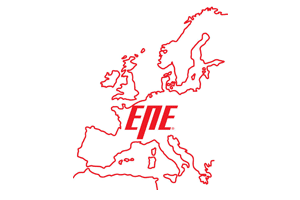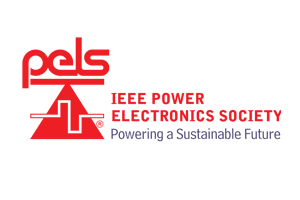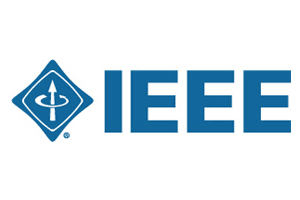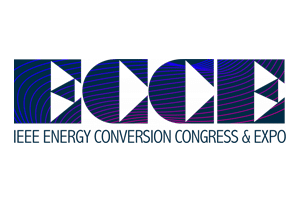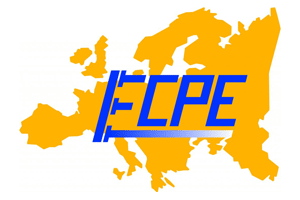Special Session: Recycling and reuse of electric vehicle batteries and power electronics
Session Format:
Informal talks (6-7) supported by panel sessions (1-2)
Date & Time:
Wednesday 6 September: Two parts: 14:10 – 15:10 & 15:40 – 16:40
Location:
Room 1.01 Banen
Session Organizers:
Prof. Frede Blaabjerg – Aalborg University
Prof. Chris Mi – San Diego State University
Prof. Ariya Sangwongwanich – Aalborg University
Session Speakers/Panelists:
- Prof. Chris Mi – San Diego State University (Confirmed)
- Dr. Chao Yan, Princeton NuEnergy, USA (Confirmed)
- Dr. Matt Lee, Michigan State University (Confirmed)
- Prof. Brian Vejrum Wæhrens, Aalborg University (Confirmed)
- Prof. Johann Kolar, ETH Zurich (Confirmed)
- Michael Wassermann from Danfoss Drives
Abstract:
The number of electric vehicles (EVs) on the roads is growing rapidly. EV batteries today, almost exclusively lithium-ion based, can last about 10 years before they can no longer provide the required performance such as power and range. The batteries and power electronics in EVs cost heavily in both production and recycling. Handling the retired EV batteries and power electronics components is thus important both for economic and environment (e-waste).
Second-life EV components and batteries include not only the batteries that are discarded from EVs due to degraded conditions, but also in-warranty replacements, road accidents, test vehicles, and unsold components. These components, though no longer roadworthy in the vehicle, still have considerable lifetime for renewable energy and smart grid applications where the requirement for energy and power density is not as stringent in vehicles, e.g., to buffer the volatile nature of the energy output of renewable energy systems. The second-life use extends the life cycle of these components after their first life in EVs, improves the environment, reduces EV ownership cost by selling them for second-life use, and reduces the cost of BESS in renewable energy systems. The same considerations are also applied for power electronics from the retired EVs, where the potential to minimize the virgin material exploitation and reduce cost through the reuse and remanufacturing process exists.
However, there are a number of barriers to overcome in the deployment of second-life EV components, including how to properly remove them from vehicles, transport, store, test, and select second-life them for storage applications; how to quickly and accurately identify the components’ health conditions of power electronic and battery before and after deployment in the new application, e.g., grid storage; how to dynamically manage them so as to minimize degradation and optimize usage; and how to meet various standards related to fire hazardous mitigation/prevention, certification, permit, and safety. These issues can be addressed through different phase of product life cycle, e.g., design, manufacturing, operation, and recycling (i.e., end-of-life). This special session will take a thorough look at the reuse and recycle of electric vehicle components, including batteries and power electronics.
Session Outline:
Part I: Second-life battery (60 min):
- (15 mins) Talk 1 – Benefits, Safety, and Regulatory Issues, and Feasibility of Using Second-life EV Battery for Storage Applications, Prof. Chris Mi
- (15 mins) Talk 2 – Plasma based Direct Recycling of Lithium Ion Batteries, Dr. Chao Yan
- (15 mins) Talk 3 – Prof. Matt Lee
- (15 mins) Panel – Second-Life EV Battery for Renewable Energy and Smart Grid Applications, Challenges in battery reuse and recycling; environment impact of second use and approaches for recycling.
Break
Part II: Sustainability of power electronics (60 min):
- (15 mins) Talk 1 – On the road from recyclable to recycled, Prof. Brian Vejrum Wæhrens
- (15 mins) Talk 2 – Power Electronics 5.0: Circular Economy Compatibility, Cognitive Digital Twins, and Use of AI in design and maintenance etc.,
Prof. Johann Kolar - (15 mins) Talk 3 – Refurbishment Activity in Danfoss, Michael Wassermann
- (15 mins) Panel – Making power electronics sustainable – how do we close the loop?
Organizer Biography:

Frede Blaabjerg was with ABB-Scandia, Randers, Denmark, from 1987 to 1988. From 1988 to 1992, he got a Ph.D. degree in Electrical Engineering at Aalborg University in 1995. He became an Assistant Professor in 1992, an Associate Professor in 1996, and a Full Professor of power electronics and drives in 1998. In 2017 he became a Villum Investigator. He is honoris causa at University Politehnica Timisoara (UPT), Romania, and Tallinn Technical University (TTU) in Estonia.
His current research interests include power electronics and its applications such as in wind turbines, PV systems, reliability, harmonics, and adjustable speed drives. He has published more than 600 journal papers in the fields of power electronics and its applications. He is the co author of four monographs and editor of ten books in power electronics and its applications.

Chris Mi is the Distinguished Professor of Electrical and Computer Engineering at San Diego State University. He is a Fellow of IEEE (Institute of Electrical and Electronics Engineers) and SAE (Society of Automotive Engineers). He is also the Director of the US Department of Energy-funded Graduate Automotive Technology Education (GATE) Center for Electric Drive Transportation at SDSU. He was previously a faculty member at the University of Michigan-Dearborn from 2001 to 2015, and an Electrical Engineer with General Electric from 2000 to 2001. He also served as the CTO of 1Power Solutions from 2008 to 2011, and CTO of EV Safe Charger, Inc. from 2021. Dr. Mi received his Ph. D from the University of Toronto, Canada, in 2001.

Ariya Sangwongwanich received the B.Eng. degree in electrical engineering from Chulalongkorn University, Thailand, in 2013, and the M.Sc. and Ph.D. degree in energy engineering from Aalborg University, Denmark, in 2015 and 2018, respectively. He is currently working as an Assistant Professor at the Department of Energy Technology, Aalborg University, where he is a Vice-Leader of Photovoltaic Systems research program. His research interests include control of grid-connected converters, photovoltaic systems, reliability in power electronics, and multi-level converters.
He was a Visiting Researcher with RWTH Aachen, Aachen, Germany in 2017 and University of Cambridge, Cambridge, United Kingdom in 2023. Dr. Sangwongwanich was the recipient of the Danish Academy of Natural Sciences’ Ph.D. Prize and the Spar Nord Foundation Research Award for his Ph.D. thesis in 2019.
Speaker/Panelist Biography:
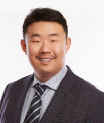
Dr. Chao Yan is the Chief Executive Officer and Founder of Princeton NuEnergy. He is a research scientist at Princeton University in the Mechanical & Aerospace Engineering and Chemical & Biological Engineering departments, where his research is mainly focused on energy conversion, fuels, and batteries. He is also a founder of Princeton NuEnergy (PNE) and a co-inventor of the direct recycling of lithium batteries technology based on LPAS (low-temperature plasma-assisted separation). He has published over 30+ high-impact publications and 40+ conference presentations in the energy field. He is a leading expert in physical chemistry and battery materials. He earned his Ph.D. in Physical Chemistry from the New Jersey Institute of Technology. In business, he has administered and operated a serial enterprise since 2014. Dr. Yan has combined his two passions of science and business by founding and leading PNE.
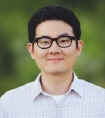
Prof. Woongkul (Matt) Lee received the B.S. degree from Yonsei University, Seoul, South Korea, in 2013, and the M.S. and Ph.D. degrees from the University of Wisconsin-Madison, WI, in 2016 and 2019 all in electrical engineering. He was a postdoctoral research associate with the Wisconsin Electric Machines and Power Electronics Consortium (WEMPEC) at the University of Wisconsin-Madison, where he pursued advanced motor drive technology using wide bandgap (WBG) devices and integration. Since 2020, he has been with Michigan State University, where he is an Assistant Professor in the Electrical and Computer Engineering Department. His research interests include high-performance motor drive, power electronics, electric machines, and distributed energy resources.
Prof. Brian Vejrum Waehrens is a Professor at Aalborg University. His current research interests are digital and sustainable transformation of industry – studied as the effective integration of day-to-day operations across a dispersed operations network, and its link with strategic develop-ment initiatives within the company andat the supply chain level. Combining theo-ries from the domains of operations/supply chain management,environmental management, and strategy.
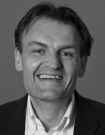
Prof. Johann W. Kolar received the M.Sc. and Ph.D. degrees (summa cum laude) (promotio sub auspiciis praesidentis rei publicae) from the University of Technology Vienna, Austria, in 1997 and 1999, respectively. Since 1984, he has been an Independent Researcher and an International Consultant in close collaboration with the Vienna University of Technology, in the fields of power electronics, industrial electronics, and high-performance drive systems. He was appointed as an Associate Professor and the Head of the Power Electronic Systems Laboratory, Swiss Federal Institute of Technology (ETH) Zürich, in February 2001, and was promoted to the rank of a Full Professor, in 2004. He is at the Power Electronic Systems Laboratory (PES), ETH Zürich. He has proposed numerous novel converter concepts including the Vienna rectifier, the sparse matrix converter, and the Swiss rectifier, has spearheaded the development of x-million rpm motors, and has pioneered fully automated multiobjective power electronics design procedures. He has supervised more than 80 Ph.D. students to completion, has published more than 1000 journal and conference papers, and four book chapters, and has filed more than 200 patents in the course of international industry research collaborations. His current research interests include ultracompact/efficient WBG converter systems, ANN-based design procedures, solid-state transformers, ultrahigh-speed drives, bearingless motors, and the lifecycle analysis of power electronics converter systems. He has presented more than 40 educational seminars at leading international conferences and has served as an IEEE PELS Distinguished Lecturer, from 2012 to 2016. He has received more than 40 IEEE Transactions and conference prize paper awards, the 2014 IEEE Power Electronics Society R. David Middlebrook Achievement Award, the 2016 IEEE PEMC Council Award, the 2016 IEEE William E. Newell Power Electronics Award, the 2021 EPE Outstanding Achievement Award, and two ETH Zurich Golden Owl Awards for excellence in teaching. He was elected to the U.S. National Academy of Engineering as an International Member, in 2021.
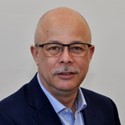
Michael Wassermann is a senior director of Sustainability & Compliance at Danfoss Drives.

